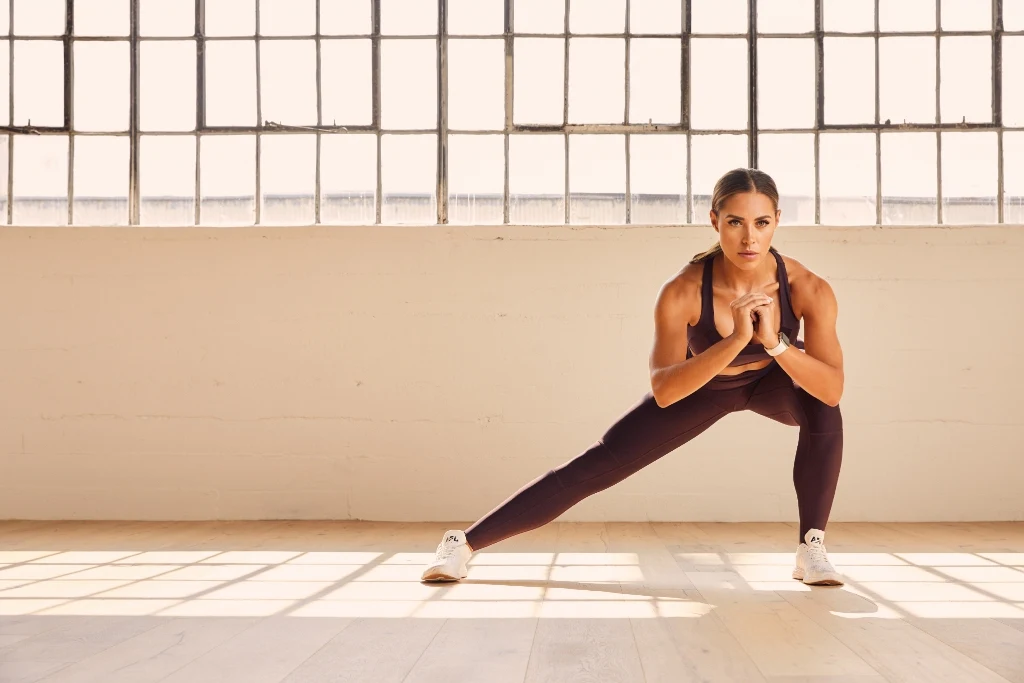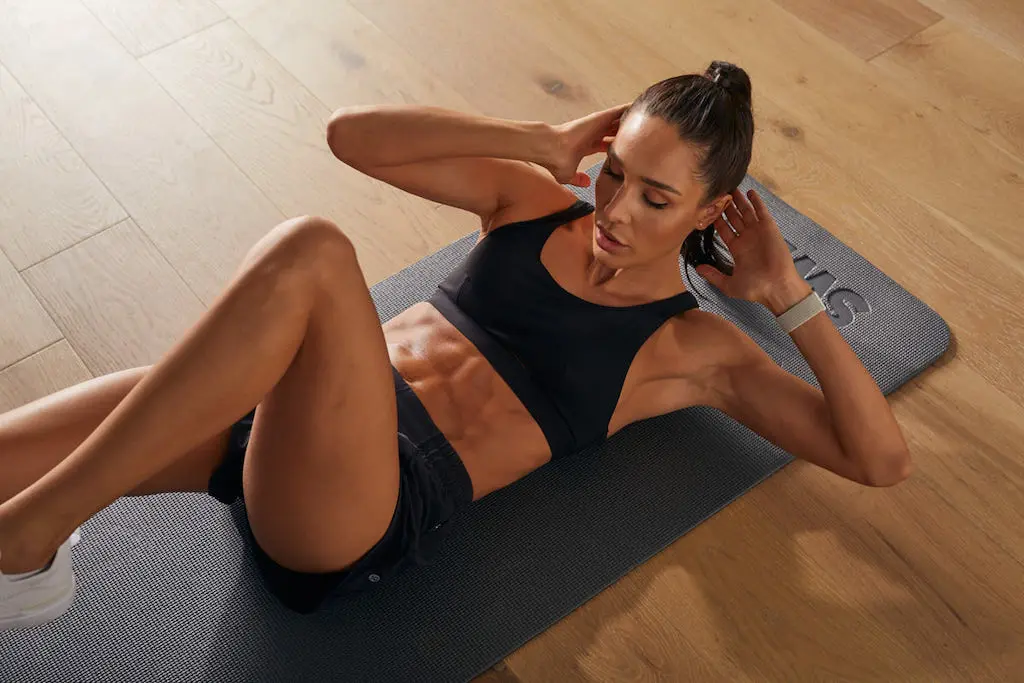How To Choose The Best Fitness Tracker

July 6, 2018
Whether you’ve set yourself a fitness goal to move more, want to maximise your training by monitoring your heart rate, or simply want to count your steps, a fitness tracker is arguably one of the best ways to monitor your movements, boost motivation, and improve your health.
The latest generation of wearable fitness trackers go well beyond just monitoring your daily movement. You’ll be able to rely on your device to measure your heart rate zones, track your GPS (so you can measure the distance and pace of a walk, run or cycle with precision) and send you regular reminders to get up and move. Some even offer sleep tracking, guided breathing activities to help you to relax, and a place to log your diet, hydration, and even track your menstrual cycle.
If you’re considering buying a tracker for the first time or looking to upgrade, our guide to choosing the best fitness tracker will help you get to grips with the different types of devices, and the latest features. Even if you already have a tracker and just want to make the most of your device, these tips will explain how to get the most out of it, so you can maximise your training.
How to choose the best device
There are three main types of wearable trackers: GPS watches or trackers, fitness trackers and smartwatches. You can use all three devices to count steps, track running distance, monitor fitness levels, measure your heart rate zones, and receive stats and notifications – but each type also comes with its own strengths and weaknesses.
Is a GPS running watch right for you?
If you’re a runner and you want to track your speed and distance, but don’t want to run with your phone, a GPS running watch might be your perfect match. GPS trackers can also provide data on other activities if you do a range of outdoor training, including swimming, cycling, hiking or even cross-country skiing.
Pros:
Provides the most accurate stats on your pace and how far you’ve gone
The interface is easier to use while you’re running
Tend to offer more advanced metrics, like VO2 max score (this is how much oxygen your body is able to consume during maximum effort)
Cons:
Can be quite big and clunky-looking
Expensive
The battery can drain quickly

Is a fitness tracker right for you?
Want to track your daily activity level, sleep movements, and motivate yourself to keep moving? Opt for a fitness tracker.
Pros:
Battery can last a full week in between charges
Latest models have built-in activity sensing
Much more discreet looking than GPS watches
Cons:
The screens on most fitness trackers aren’t big enough to convey more than a few letters of text
Running distances and times can be inaccurate
They can take a minute or two to find a strong enough GPS signal
Is a smartwatch right for you?
Want something that helps you plan and track your entire life – as well as your workouts – and is stylish enough to wear every day? Go for a smartwatch.
Pros:
Great for interacting with notifications
You can customise which notifications you receive
You can swap out the straps for a leather band or something sweat resistant
Cons:
Needs to be charged every day
Costs more than a running specific watch and a fitness tracker combined
Not all makes and models are fully waterproof
The features you need to know about
If you’ve found yourself hitting a workout plateau or achieving your fitness goals feels like a never-ending uphill challenge, there are dedicated fitness tracker features to help you get back on track.
Heart rate monitor
Knowing how to use heart rate zones is one of the best ways to maximise your training and understand your general health and aerobic fitness level. Thankfully, the days of needing a separate chest strap with a heart rate sensor are long gone – most modern fitness trackers can now read your heart rate from the skin on your wrist.
GPS
If you plan on running or cycling, or you’re training for a specific event such as a marathon or triathlon, you’ll want a watch that also has GPS. Not only will this functionality provide accurate stats such as distance and pace, but some fitness trackers with GPS can also map your routes before you leave the front door, saving you valuable time.
Waterproof
If you’re a swimmer who wants to record lengths in the pool or how far you’ve swum in open water, you’ll need a waterproof fitness tracker. Look for a device that automatically detects your heart rate, swimming style, distance, pace, strokes and rest times.
If you’re using swimming to complement your running or other training sessions, tracking your swimming workouts will help you to get a complete overview of all your training in your plan. Having a fully waterproof watch means you can wear it in the shower, too.

VO2max
VO2max, which stands for Maximal Oxygen Uptake, is the number that describes your cardiorespiratory fitness. It’s one of the most accurate metrics for understanding how well your heart, lungs, circulatory system and muscles are all working independently and together.
Look for a tracker that lets you measure your current aerobic fitness levels through a simple VO2max fitness test. If you’re a runner, you can then use your VO2max to estimate finishing times for a 5k, 10k or marathon and use VO2max intervals to improve your aerobic endurance and lactate threshold.
Move reminders
If you’ve spent too much time during the day being sedentary, some trackers will prompt you with a vibration and a note on the screen saying something like “Time to move”.
These little reminders can be an incredibly useful way to get your body moving with low-intensity exercise – and also to remind you to take regular short breaks from work during your day.
Sleep tracking
Wearing a bulky fitness watch in bed can be a little uncomfortable, so if you want to track your sleep patterns, opt for a fitness tracker that has a more sleek design.
Wearables that track your light, deep and REM stages of sleep, along with movement or interruptions throughout the night, offer a lot of data. But understanding how much quality sleep you’ve had – and how well your nervous system has recovered during the night – will help you to train smarter, and prioritise recovery.
How accurate are fitness trackers?
Although fitness trackers measure most activities, they’re far from perfect. It’s best to err on the side of caution and treat trackers (especially ones based solely on your step-count) as more of a rough guide. After all, wrist-based watches track your arm movements, which closely match what your legs are doing. But if you’re pushing a stroller or a shopping cart, for example, it might not count those steps towards your daily goal (as your wrist won’t be swinging).
The lesson? Take the data with a pinch of salt – and don't obsess over the numbers. Most fitness trackers sync to an app that collates and displays all your data (such as your average heart rate or how many hours you’ve slept). Think of all these figures as purely an estimate, not a rigid outline.
How to use fitness trackers to make lasting, healthy changes
As well as learning about your fitness tracker’s capabilities, there are a couple of other things you can do to make sure you’re getting the most from your device.
Connect your device to the app and your computer
Most fitness trackers have their own compatible apps that let you input personal stats, training results and specific goals. Some fitness tracker apps also let you change settings on the tracker – for example, setting your own max heart rate or power zones, or even setting yourself drink reminders, so your wearable will make sure you remember to hydrate regularly.
Sign up for motivational challenges and rewards
Some of us feel more motivated to move if we’re rewarded for completing a workout (extrinsic motivation), while others gain motivation to exercise purely because of the internal satisfaction it brings (intrinsic motivation).
A 2020 study by Loyola Marymount University in the US, published in Digital Health, found that users of fitness trackers rated motivational cues, general health information, and challenges as the most helpful features offered by their devices. This suggests that individuals who are extrinsically motivated can benefit from the use of activity trackers to help stay motivated to exercise regularly.
If this sounds like you, you could also try signing up to challenges and or the Sweat community as an additional way to get an extra motivational boost.
Knowing your goals is key to tracking your fitness
Before you buy a tracker, think about what you really want to get out of your device. Do you want a fitness tracker that tracks specific workouts as well as everyday activities and movement? Are you looking for something with smartwatch features so you can respond to calls and download workout playlists? Or is your aim to track your runs or bike rides so you can set a new personal best?
Once you’ve established your goal, you’ll find it much easier to choose a fitness tracker that helps you get moving, and motivates you to take your training to the next level.
What’s your favourite way to track your training? Let us know in the comments below.

A more empowered you starts with Sweat, and our editorial team is here to bring you the latest fitness tips, trainer recommendations, wellbeing news, nutritional advice, nourishing recipes and free workouts.
* Disclaimer: This blog post is not intended to replace the advice of a medical professional. The above information should not be used to diagnose, treat, or prevent any disease or medical condition. Please consult your doctor before making any changes to your diet, sleep methods, daily activity, or fitness routine. Sweat assumes no responsibility for any personal injury or damage sustained by any recommendations, opinions, or advice given in this article.
Wellbeing